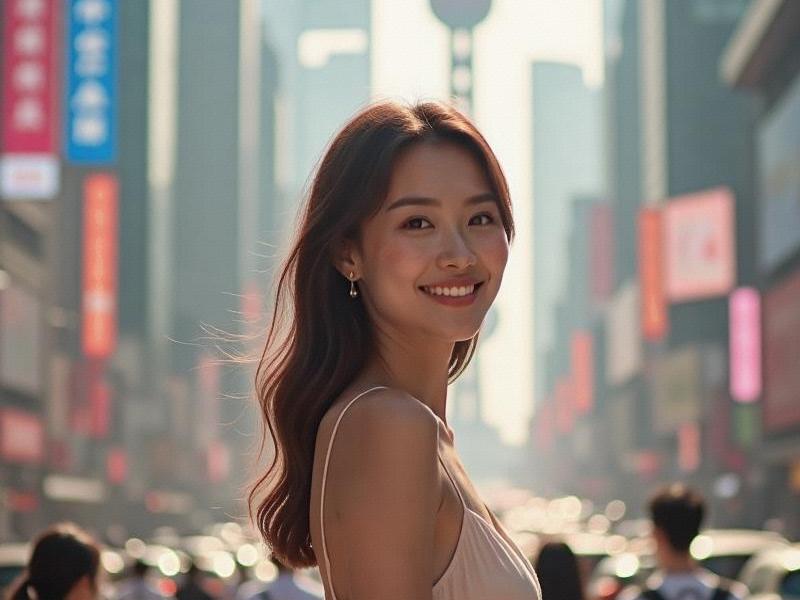This in-depth feature explores how Shanghai's diverse female population is creating a new paradigm of beauty that blends traditional Chinese aesthetics with global influences, while challenging conventional standards through entrepreneurship and self-expression.

Shanghai has long been China's runway for sartorial innovation, but the city's contemporary beauty landscape reveals deeper societal transformations. A 2024 survey by Fudan University's Gender Studies Center found that 68% of Shanghai women aged 20-45 define beauty as "self-confidence" rather than physical attributes - a significant shift from decade-old surveys prioritizing fair skin and delicate features.
The Shanghai beauty aesthetic today manifests in three distinct dimensions:
1. The Entrepreneurial Muse
The city's female-led beauty startups increased by 217% since 2020. Brands like "Hùlí" (a skincare line merging TCM herbs with biotech) and "Modu Glow" (custom foundation algorithms) showcase how Shanghai women are commercializing their beauty philosophies. Founder Li Jiawen, 29, explains: "We're selling not creams, but the Shanghai girl's secret - being unabashedly yourself."
新夜上海论坛 2. Street Style as Social Commentary
Shanghai's fashion districts reveal calculated rebellions:
• Xintiandi's "power skirts" - traditional qipao silhouettes with bold modern prints
• Jing'an's "double eyelid paradox" - makeup emphasizing natural monolids
• Former French Concession's "gray hair movement" - young women dyeing hair silver as anti-ageism statements
上海龙凤419贵族 3. Digital Persona Crafting
Shanghai's live-streaming queens have developed unique beauty dialects:
• "3D makeup" techniques for holographic commerce broadcasts
• AI-generated "digital twins" maintaining perpetual glamour
• The rise of "imperfect filters" celebrating small flaws
上海龙凤阿拉后花园 Cultural observers note this represents a broader renegotiation of femininity. Professor Chen Wei of East China Normal University notes: "Shanghai women are architecting beauty standards that serve them, rather than serving standards." The numbers support this - cosmetic surgery rates in Shanghai grew just 8% compared to 34% nationally, while spending on self-improvement courses surged 156%.
The municipal government has cautiously supported this evolution through initiatives like:
• The annual "Shanghai Style" festival showcasing diverse beauty
• Subsidies for inclusive fashion tech development
• Strict regulations against unrealistic beauty filters in advertising
As Shanghai prepares to host the 2026 World Fashion Conference, its women continue demonstrating how metropolitan China reconciles tradition with progress - not through rejection of heritage, but through its creative reinterpretation. Their version of beauty isn't about looking a certain way, but about owning one's multifaceted identity in the world's most dynamic city.